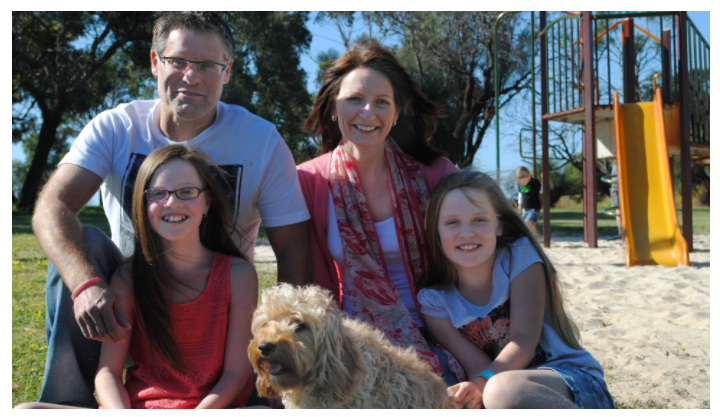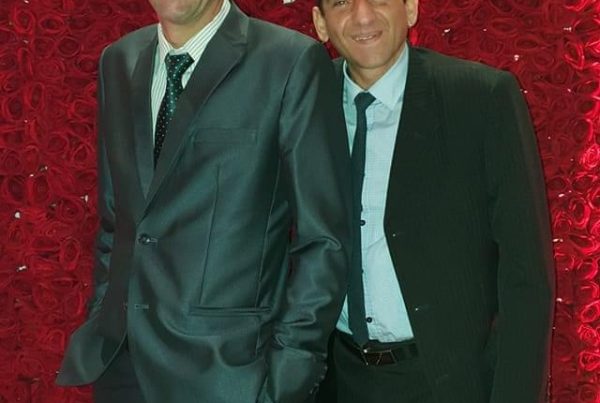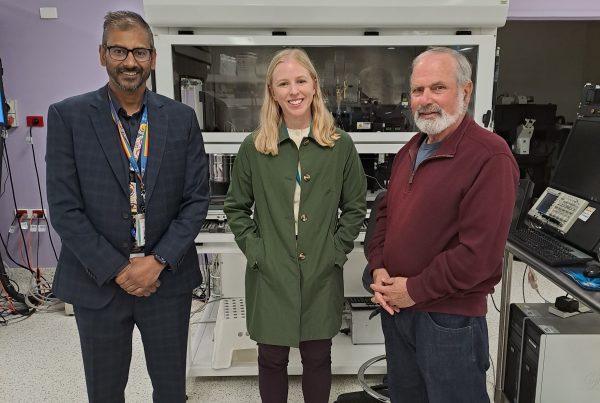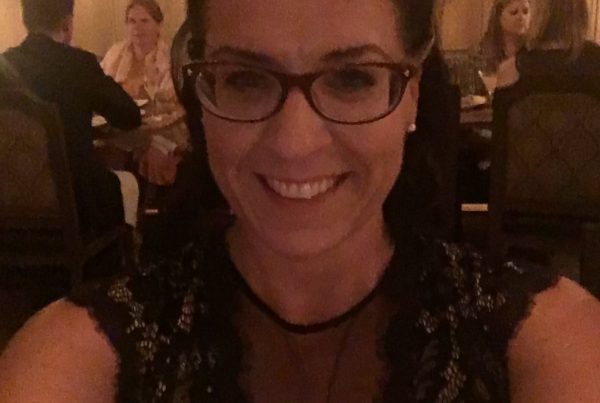Many of our community members often tell us they always thought having children was out of the equation. However, this is not the case, and people with CF are raising children all over Australia. Having CF can reduce the fertility potential of both men and women but there are many options available to assist in starting a family.
If you and your partner are trying for a baby or want to know the status of your fertility, it’s a good idea to start with talking to your CF clinic team. They understand your health, how modulators impact fertility and can arrange for specialist assistance if required. This process generally begins with an initial consultation to discuss fertility, IVF, and CF health. Clinics typically recommend skilled consultants who are knowledgeable about CF.
If you are unable or decide not to have children of your own, we have provided some information on alternative options such as foster care and adoption.
Fertility for women with CF
It is estimated that most women with CF (around 85%) are able to naturally conceive and carry a baby to full term.
Some women may experience common fertility complications due to having CF, including irregular periods, low body weight, and thicker cervical mucous. These complications are tackled in the same way as for women without CF. Whether you have CF or not, getting pregnant naturally doesn’t always run smoothly and there are other options available.
Assisted reproductive technologies for women
There are four main assisted reproductive technologies that assist couples who are experiencing difficulty conceiving.
Ovulation induction involves a series of hormone injections or tablets to stimulate the release of an egg from the ovaries. It may be used for women with CF if they are not ovulating or have an irregular menstrual cycle.
Artificial insemination involves inserting semen through the cervix and into the uterus, close to the time of ovulation. It is often useful to help women with CF become pregnant if thick vaginal mucus is preventing the sperm from reaching the egg.
In vitro fertilisation (IVF) involves taking hormones to stimulate the ovaries to produce eggs. Eggs are collected from the woman and sperm is collected from the male partner. These are then combined in a laboratory to form an embryo. The fertilised embryo is then transferred to the woman’s uterus in the hope it will implant in the uterine wall. IVF can be physically and emotionally difficult, and expensive. Success is not guaranteed.
Surrogacy involves a woman carrying a child for another person or couple, and agreeing to give the child to the person or couple immediately after birth. Using a surrogate can be an option for women with CF who are advised against carrying a pregnancy themselves, but still want to have a child. Surrogacy is now legal in most states in Australia, but it is a very complex undertaking for everyone involved.
Dr. Kim Matthews explains fertility options for women:
A multidisciplinary approach prior and during pregnancy and labour (including anaethetics with experience in CF and high risk obstetrics) are essential and fertility management with the goal of a single pregnancy is the aim.
Fertility management can range from simple measures to boost ovulation whilst being monitored to avoid a multiple pregnancy, intrauterine insemination to bypass thick cervical mucous, through to IVF with a single embryo transfer and the use of preimplantation genetic diagnosis (PDG) to minimise the risk of CF in the offspring if this is appropriate. The PGD process is a complex one and requires determining the exact genetic carrier status of the couple and developing a specific probe for this combination.
Counselling is required part of this process prior to proceeding and numerous embryos need to be developed and frozen whilst awaiting the PGD results. The aim is to transfer an appropriate single embryo to the uterus, thus bypassing the thick cervical mucous, and supporting any pregnancy that may results. The uterus is not a cave but a potential space and is prepared ready for the embryo transfer at the appropriate time of the cycle. These embyros can also be used in a surrogacy situation if pregnancy is considered a contradiction for the mother with CF.
Shelley on pregnancy and CF
Shelley shares her story of beginning discussions around pregnancy and the approach she and her partner have taken before starting their journey into parenting.
Comments from members on IVF and CF:
“Make sure you upgrade your insurance to help cover incidental costs.”
“We had to have police checks. There were a lot of things I wasn’t expecting.”
“Everyone’s IVF journey is so different. Everyone’s body is different. Some people have no issues with IVF and others have lots of complications.”
“I have CF and the issue wasn’t with me, it was with my partner. We had assumed incorrectly.”
“I found the fine needle biopsy to be quite painful.”
“Save up. There are Medicare rebates but also lots of smaller costs that can add up. Gyno’s, egg retrieval, embryo transfers, genetic tests, storage, etc.”
“Ask your IVF clinic for age bracket success rates. The success rates can skew to look really positive if they just give an overall statistic.”
“The IVF ride is challenging. Surrender to the process and try not to control it.”
“It had its ups and downs, but in the end it’s all worth it.”
“You’re your best advocate”—Shelley on pregnancy and CF
When Shelley and her partner decided to start a family, they had plenty of questions but there weren’t always a lot of answers. For CFStrong, Shelley discusses her experience of pregnancy, childbirth and parenting and how she managed her CF throughout.
Fertility for men with CF
Approximately 98% of men with CF are infertile because their vas deferens, which is the duct that carries sperm from the testicles to the ejaculatory duct, is either blocked or absent. However, this does not cause erectile dysfunction (impotence) and sperm is still produced.
If you are a man with CF and you are considering having a family, or simply want to know whether you are fertile, you can have a sperm count done. This involves collecting a sample of your semen to look at the number of sperm, their size and shape, and how well they move. For assistance with a referral, speak to your CF treating team.
Assisted reproductive technology for men
While most men with CF will require medical assistance to conceive a child, the procedure required is relatively straightforward. The first step is sperm extraction, which removes sperm from the testicles under local anaesthetic.
This is usually done on the same day as his female partner has her eggs collected using ultrasound for guidance, often after ovulation induction.
One of those eggs is then fertilised with a single sperm in a laboratory, an IVF procedure known as intracytoplasmic sperm injection. When that is successful, the resulting embryo is then implanted in the woman’s uterus.
You should discuss any potential risks and complications for these procedures with your fertility specialist.
Sam on IVF and CF
Sam shares his journey to fatherhood and discusses the challenges and concerns that may arise for men living with CF.
Andrew on IVF and becoming a dad
“Parenting is not easy regardless of whether or not you have something like CF, having said that, it is the most rewarding experience in the world.”
Read about Andrew’s experience with IVF and becoming a dad.
Alternative options
Realistically, natural conception and IVF can be unsuccessful or not an option for anyone, including those with CF. When speaking to our community about these scenarios, curiosity and questions surrounding donors, adoption and fostering are raised. We have members who have had successful and unsuccessful stories for each. These are highly independent scenarios and personal decisions. Below is some information to assist you.
Donors
Using donor sperm, eggs or embryos is an option many couples who are struggling to conceive consider. We suggest you speak with your preferred IVF clinic in your state, as the legislation and laws surrounding these options may vary from state to state.
Fostering and Adoption
The option or possibility of fostering or adopting a child is often investigated. These options are available in Australia, are highly personal decisions and people within our community have had varied experiences. A common concern for people with CF is that these processes can be emotionally and financially challenging which may impact a person’s overall health and wellbeing.
Adoption in Australia can be a long, rigorous, and expensive process. International agencies often consider the religion, health, and financial status of applicants when making considerations for suitable families in Australia.
Adoption: For more information head to AdoptChange.
Fostering: For information on fostering in Victoria, and in NSW. For other states, we suggest searching your state government website as each state runs its fostering program differently.
Resources
CF Western Australia has some great resources on fertility and IVF:
- Personal stories about fertility
- A fact sheet on female reproduction
- A fact sheet on male reproduction
International Resources
- We recommended the comprehensive guide about Family Planning with CF, published by the Cystic Fibrosis Trust in the UK.
- The Obstetrician and Gynaecologist magazine has published a clinical review of cystic fibrosis and pregnancy.
- Cystic Fibrosis News today has an article on five facts about fertility and the experiences of four women and another called CF Mamas discuss pregnancy health, delivery and breastfeeding.
- The Center for Young Women’s Health at Boston Children’s Hospital in the US addresses some common questions on pregnancy and CF.
- The Cystic Fibrosis Foundation in the US has an article called Planning for a safe pregnancy and a section on pregnancy and CF, with blogs and articles.
Reference
Matthews, K (2018), Gynaecological and Fertility Issues in Cystic Fibrosis, Community Focus Magazine.
This story was published in February 2021. If you would like to share your story, please contact us at admin@cfcc.org.au. We’d love to hear from you and so would our readers.






